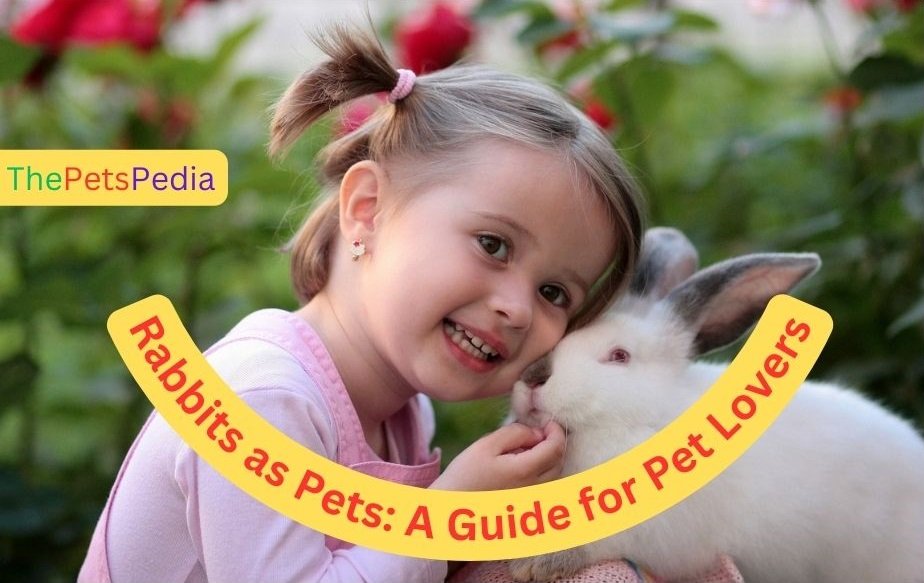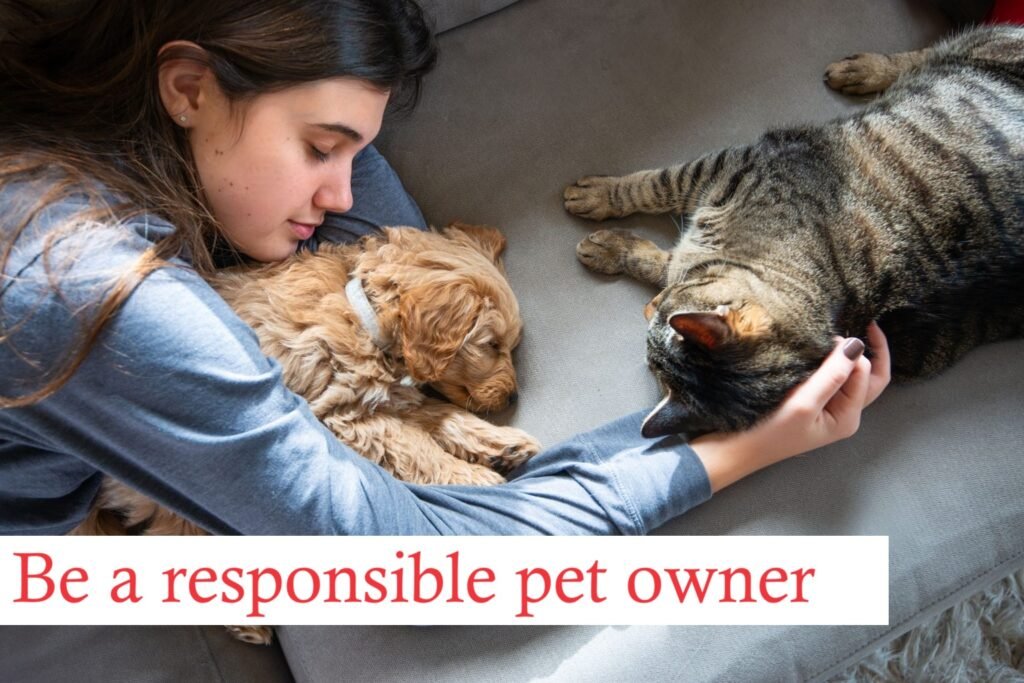Rabbits are becoming more popular as pets for families and individuals. Rabbits are now loved for their charm, intelligence, and caring nature as indoor pets. According to the American Pet Products Association (APPA), rabbits are the third most popular small pet in the U.S., and their popularity is growing. This guide will help you learn about keeping rabbits as pets, including their care, health, behavior, and housing needs.
Why Rabbits Make Wonderful Pets
These furry companions have unique qualities that make them great pets for many homes. Whether looking for a calm friend or a playful pet, rabbits might be the perfect choice. Here are the main reasons why rabbits are becoming so popular:
- Gentle and Friendly: They are naturally gentle animals. With the proper care, they can bond closely with their owners. They are great for families with children, seniors, or even people who live alone.
- Quiet Pets: Unlike other pets, such as dogs or cats, these animals are silent. They don’t bark or meow, making them perfect for people who live in apartments or need a calm pet. Instead of making noise, rabbits use body language and small sounds, like tooth purring, to show they’re happy.
- Different Sizes and Breeds: There are over 50 types of rabbits, each with a different size, personality, and look. Whether you want a small, active rabbit or a large, calm one, you can find the right breed for your home.
- Playful and Smart: They are intelligent animals that can be trained to use a litter box and even learn simple tricks. They are playful and curious, needing toys and activities to keep them busy and happy.
Rabbits are flexible pets that can fit into many different types of homes. They adapt well to living indoors and can become loving family members.
Popular Rabbit Breeds for Pets
Choosing the right rabbit breed is essential because each breed has a different size, personality, and care needs. Here are some of the most popular pet rabbit breeds:
| Breed | Size | Personality | Lifespan |
| Mini Lop | Small | Affectionate and playful, it is ideal for families or tiny homes. | 7-10 years |
| Holland Lop | Small | Friendly, social, and easygoing. They are known for their floppy ears and calm nature. | 7-14 years |
| Netherland Dwarf | Very Small | Energetic and curious but may be shy at first. Best for experienced owners. | 10-12 years |
| Flemish Giant | Large | Calm and gentle, known as “gentle giants.” They need more space due to their size. | 5-8 years |
Each rabbit breed has its traits, so it’s essential to choose one that fits your lifestyle and the space you have at home. Whether you want a small rabbit that’s easy to handle or a giant rabbit with a calm nature, there’s a breed for you.
Housing and Space Needs for Rabbits
Rabbits need a safe, comfortable place to live. While many people think of outdoor cabinets for them, more people choose to keep them indoors to spend time with the family. Here’s what you need to know about where your rabbit will live:
Indoor Housing
- Cage or Pen: Your rabbit’s cage or pen should be big enough to hop around, stretch, and stand up. A good rule is that the cage should be at least 12 square feet.
- Free Roaming: Some rabbit owners let their pets roam freely in a rabbit-proofed room or space for several hours daily. This gives them a chance to exercise and stay happy.
- Safety: If you let your rabbit roam freely, be sure to rabbit-proof your home. Cover electrical cords, remove dangerous plants, and block off areas that could be unsafe. Rabbits love to chew, so keep them safe.
Outdoor Housing
- Outdoor Hutch: If you keep your rabbit outside, ensure the cabinet is safe from predators and bad weather. Outdoor rabbits are more exposed to the weather and animals, so they should come inside during bad weather and need human interaction regularly.
- Exercise Area: Rabbits need time outside their cages to exercise, whether indoors or outdoors. Create a safe, enclosed area where your rabbit can hop around and explore.
“A rabbit’s home should be more than just a cage. They need room to run, play, and explore. The more space you give them, the happier and healthier they’ll be.” — Rabbit Welfare Association & Fund (RWAF)
Diet and Nutrition: What to Feed Your Rabbit
Giving your rabbit the right food is very important for their health. A balanced diet will help them live a longer, healthier life. Here’s what you should feed your rabbit:
- Hay: Hay should make up about 80% of a rabbit’s diet. It is essential for their digestion and helps wear down their constantly growing teeth. Timothy hay or orchard grass is excellent for adult rabbits.
- Fresh Vegetables: Feed your rabbit leafy greens like romaine lettuce, kale, parsley, and cilantro daily. These veggies give your rabbit vitamins and hydration. Stay away from iceberg lettuce, and limit sugary veggies like carrots.
- Pellets: Hay and vegetables should be the main food, but small amounts of high-quality rabbit pellets can also be given. These pellets should be made for rabbits and free from seeds or dried fruit.
- Water: Fresh, clean water must always be available. You can use a water bottle or a shallow bowl, whichever your rabbit prefers.
Foods to Avoid:
- Sugary fruits (only give in small amounts)
- Chocolate or processed human food
- Avocados (they are toxic to rabbits)
- High-sugar veggies like potatoes or corn
A balanced diet will help prevent common rabbit health problems like digestion and dental disease. Always make sure your rabbit has plenty of hay and fresh vegetables.
Health Care for Rabbits
Like all pets, these animals need regular health care to stay in good condition. Here are some common rabbit health problems and how to prevent them:
- Dental Problems: A rabbit’s teeth never stop growing. If they don’t chew enough on fibrous food (like hay), their teeth can get too long, causing pain and eating problems. Ensure your rabbit always has hay to chew on, and check their teeth regularly.
- GI Stasis (Gastrointestinal Stasis): GI stasis is a severe condition where the rabbit’s digestive system slows down or stops. Stress, a poor diet, or dehydration can cause it. Prevent this by feeding your rabbit a diet rich in fiber (hay) and ensuring they always have fresh water.
- Myxomatosis and Rabbit Viral Hemorrhagic Disease (RVHD): These are dangerous viral diseases that can be deadly for rabbits. Vaccinations are the best way to protect your rabbit from these diseases. Flea control is also essential to stop the spread of parasites that carry these viruses.
Rabbits often hide signs of illness, so pay attention to behavior, eating, or energy changes. Regular check-ups with a vet can help find and fix any problems early.
Training and Socializing Your Rabbit
These intelligent animals can be trained and love spending time with their owners. Training helps keep them mentally active and strengthens the bond between you and your pet.
Litter Training:
They are naturally clean animals and can easily be trained to use a litter box. Place a litter box in their living space; most rabbits will learn to use it independently. You can also put some hay in the litter box to encourage them.
Socialization:
They are social animals and need attention from their owners every day. Spend time with your rabbit by sitting on the floor, petting them gently, and giving them treats. Let your rabbit come to you when they’re ready; over time, they will become more comfortable and trusting.
Socializing your rabbit will make them happier and more confident. Be gentle when handling them, as they are delicate and easily scared.
Cost of Owning a Rabbit
Owning a rabbit comes with food, housing, vet care, and toys costs. Here’s an estimate of what you might spend each year:
| Expense | Cost Range (per year) |
| Housing and Bedding | $150 – $300 |
| Food (hay, veggies, pellets) | $300 – $500 |
| Veterinary Care (including vaccinations) | $150 – $400 |
| Toys and Enrichment | $50 – $150 |
Ensure you budget for routine costs and be ready for unexpected vet bills. Taking good care of your rabbit requires both time and money.
Conclusion: Why Rabbits Are Great Pets
Rabbits are loving, intelligent, and relatively easy to care for, making them excellent pets for many homes. They bring joy to any household, whether hopping around or snuggling up for quiet time. With the proper care, a safe environment, and regular vet check-ups, rabbits can live long, happy lives.
“Rabbits may be small, but they have big hearts. They can form strong bonds with their owners and will bring happiness to your home.” — Rabbit Adoption Advocate.
Whether you’re getting your first pet or adding a new furry friend to your family, rabbits are an excellent choice for bringing love, warmth, and fun into your life.



